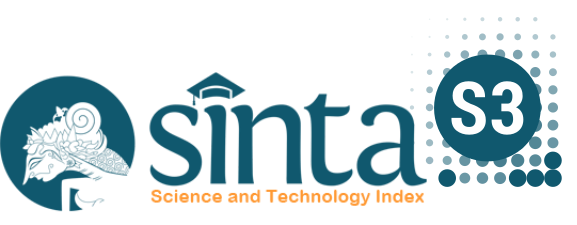Effect of ginger to overcome nausea and vomiting in pregnant women: a narrative review
DOI:
https://doi.org/10.31101/jhtam.2083Abstract views 1515 times
Keywords:
Ginger, Nausea, Vomit, PregnancyAbstract
Downloads
References
Afriyanti. (2017). The Effectiveness of Hot Ginger Drink To Decrease Nauseous Vomit on Pregnant Women at PMB YF Bukittingi City Year of 2017. Human Care Journal, 2(3). https://doi.org/10.32883/hcj.v2i3.642
Ahmed, Aktar, Farnaz, Ray, Awal, Hassan, Shafique, Hasan, Quayyum, Jafarovna, Kobeissi, Tahir, E., & Chawla. (2020). Challenges and strategies in conducting sexual and reproductive health research among Rohingya refugees in Cox’s Bazar, Bangladesh. Confl Health, 14(1), 83. https://doi.org/10.1186/s13031-020-00329-2
Ashaba, Kaida, Burns, O’Neil, Dunkley, Psaros, & Matthews. (2017). Understanding coping strategies during pregnancy and the postpartum period: A qualitative study of women living with HIV in rural Uganda. BMC Pregnancy and Childbirth. 17(1), 1–10. https://doi.org/10.1186/s12884-017-1321-9
Barney, Emerita, & Perkinson. (2016). OCCUPATIONAL THERAPY with Aging Adults : Promoting Quality of Life through Collaborative Practice (J. of C.-C. Gerontology (ed.). In Elsevier Inc.
Bodagh, N., Maleki, & Hekmatdoost. (2019). Ginger in gastrointestinal disorders: A systematic review of clinical trials. Food Science and Nutrition, 7(1), 96–108.
Cholifah, & Nuriyanah. (2019). Lemon Aromatherapy Decreasing Nauseous Vomit on Pregnant Women in Trimester I. Journal of Midwifery Midwiferia, 4(1), 36. https://doi.org/10.21070/mid.v4i1.1844
Ding, Leach, & Bradley. (2018). The effectiveness and safety of ginger for pregnancy-induced nausea and vomiting: A systematic review. Women and Birth, 26(1), e26–e30. https://doi.org/10.1016/j.wombi.2012.08.001
Dyna, & Febriani. (2020). Giving Ginger Oil Aromatherapy Towards Nauseous Vomit Frequency on Pregnant Women Morning Sickness. Nursing Journal of Health Science Kendal, 12(1), 41–46.
ElHajj, Sitali, Vwalika, & Holst. (2020). Herbal medicine use among pregnant women attending antenatal clinics in Lusaka Province, Zambia: A cross-sectional, multicentre study. Complementary Therapies in Clinical Practice, 40(1), 101218. https://doi.org/10.1016/j.ctcp.2020.101218
Hasan-Ul-Bari, & Ahmed. (2018). Ensuring sexual and reproductive health and rights of Rohingya women and girls [Letter]. Lancet, 392(10163), 2439–2440. https://doi.org/10.1016/S0140-6736(18)32764-8
Hoffman, Bennet, & Mar, D. (2020). EVIDENCE BASED PRACTICE : ACROSS THE HEALTH PROFESSIONS (S. Silva (Ed.). In Elsevier Australia.
Indrayani, Burhan, & Widiyanti. (2018). The Effectiveness of Giving Hot Ginger Drink Towards Nausea and Vomit on Pregnant Women of Trimester I in North Bengkulu Regency Year of 2017. Journal of Health Science and Technology, 5(2), 201–211. https://doi.org/10.32668/jitek.v5i2.29
Izzo, Hoon-Kim, Radhakrishnan, & Williamson. (2016). A Critical Approach to Evaluating Clinical Efficacy, Adverse Events and Drug Interactions of Herbal Remedies. Phytotherapy Research, 30(5), 691–700. https://doi.org/10.1002/ptr.5591
Javadi, H. S., Salehi, & Mashrabi. (2015). Comparing the Effectiveness of Vitamin B6 and Ginger in Treatment of Pregnancy-Induced Nausea and Vomiting. Obstetrics and Gynecology International, 1–4. https://doi.org/10.1155/2013/927834
Kustriyanti, & Putri. (2019). Ginger and Lemon Aromatherapy To Relieve Nausea and Vomiting in Pregnancy. Jurnal Keperawatan Soedirman, 14(1), 15. https://doi.org/10.20884/1.jks.2019.14.1.868
Mardiyanti, & Zuwariyah. (2019). The Effectiveness of Jsj (Jin Shin Jyutsu) in Addressing Emesis of Gravidarum in Pregnant Women At Pmb Ika Mardiyanti Sidoarjo. Nurse and Health: Jurnal Keperawatan, 8(1), 36–42. https://doi.org/10.36720/nhjk.v8i1.57
Maternity, Ariska, & Sari. (2017). Nausea and Vomit on Pregnant Women Trimester One. Journal of Midwifery, 2(3), 115–120.
Matthews, Haas, O’Mathúna, & Dowswell. (2015). Interventions for nausea and vomiting in early pregnancy. Cochrane Database of Systematic Reviews, 9(1).
Murdiana. (2019). The Therapy of Nausea and Vomit on Pregnancy in Outpatient of Hospital D Class.
Negarandeh, Eghbali, Janani, Dastaran, & Saatchi. (2020). Auriculotherapy as a means of managing nausea and vomiting in pregnancy: A double-blind randomized controlled clinical trial. Complementary Therapies in Clinical Practice, 40(1), 101177.
Omidvar, Firouzbakht, Nikpour, & Jamali. (2014). Comparison of ginger with vitamin B6 in relieving nausea and vomiting during pregnancy. AYU (An International Quarterly Journal of Research in Ayurveda), 35(3), 289. https://doi.org/10.4103/0974-8520.153746
Rofi’ah, Handayani, & Rahmawati. (2020). The Effectiveness of Ginger and Lemon Grass Consumption in Overcoming Nausea and Vomit. 7.
Rosyidah, Koning, & Ormel. (2019). Quality of maternal health care in Indonesia. Journal of Health Technology Assessment in Midwifery, 2(1), 10–22. https://doi.org/10.31101/jhtam.924
Saberi, Sadat, Kalahroudi, & Taebi. (2014). Effect of Ginger on Relieving Nausea and Vomiting in Pregnancy: A. Nurs Midwifery Stud. A. Nurs Midwifery Stud, 3(1), 1–6.
Stanisiere, Mousset, & Lafay. (2018). How Safe Is Ginger Rhizome for Decreasing Nausea and Vomiting in Women during Early Pregnancy? Foods. 7(4), 50. https://doi.org/10.3390/foods7040050
Thomson, Corbin, & Leung. (2014). Effects of ginger for nausea and vomiting in early pregnancy: A meta-analysis. Journal of the American Board of Family Medicine, 27(1), 115–122. https://doi.org/10.3122/jabfm.2014.01.130167
Timba, Giri, & Panchal. (2019). Health benefits and possible Risks of Turmeric , Garlic and Ginger : A short Review. International Research. Journal of Engineering and Technology, 6(4), 4654–4659.
Viljoen, Visser, Koen, & Musekiwa. (2014). A systematic review and meta-analysis of the effect and safety of ginger in the treatment of pregnancy-associated nausea and vomiting. Nutrition Journal, 13(1), 20. https://doi.org/10.1186/1475-2891-13-20
Downloads
Published
How to Cite
Issue
Section
License
Authors who publish with Journal of Health Technology Assessment in Midwifery agree to the following terms:
- Authors retain copyright and grant the journal right of first publication with the work simultaneously licensed under a Creative Commons Attribution License (CC BY-SA 4.0) that allows others to share the work with an acknowledgment of the work's authorship and initial publication in this journal.
- Authors are able to enter into separate, additional contractual arrangements for the non-exclusive distribution of the journal's published version of the work (e.g., post it to an institutional repository or publish it in a book), with an acknowledgment of its initial publication in this journal.
- Authors are permitted and encouraged to post their work online (e.g., in institutional repositories or on their website) prior to and during the submission process, as it can lead to productive exchanges, as well as earlier and greater citation of published work.

Journal of Health Technology Assessment in Midwifery is licensed under a Creative Commons Attribution-ShareAlike 4.0 International License..













